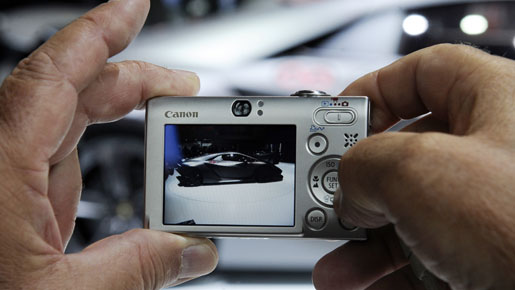
Lamborghini expects to post a roughly 35 percent slide in 2009 sales as the global economic downturn slams the brakes on spending from even the super-rich, with growth likely to pick up again only in 2011.
Next year will remain challenging for the maker of supercars graced by a charging bull logo, a unit of top European car-maker Volkswagen, though bright spots such as China may help salve the pain.
Chief Executive Stephan Winkelmann said on Wednesday Lamborghini was on track to end 2009 with about 80 cars sold in China – a sliver of the company’s annual 2,000-odd production but a market that should rank among its biggest in coming years.
Lamborghini sold 70 cars in China in 2008.
“It was tough, it’s still tough,” Winkelmann told reporters in an interview in Los Angeles before opening the company’s first fashion and accessories boutique outside China.
“2011 will be a recovery, but we first have to see, if the year 2010 will be another very tough year for the industry.”
Known for low, sleek designs and eye-watering top speeds, Lamborghini and rival Ferrari, owned by Italy’s Fiat, have remained resilient
through past downturns. But the severity of the current recession has walloped their business.
Lamborghini posted a 37 percent drop in sales in 2009’s first 10 months, Winkelmann told Reuters. Executives nonetheless expect to achieve a full-year pre-tax profit.
It sold 2,430 cars in 2008 with prices ranging from €170,000 to €360,000 ($256,000-$542,200). In the first half, it managed a €5.4m profit on revenue of €223.7m – a drop of more than 43 percent.
Winkelmann would not forecast 2010 sales.
But “everything you see has been much worse than forecast,” he warned, referring to the industry and economic data.
Divine sound
All that gloom was set aside briefly on Wednesday. In a nod to the city’s reputation as a luxury motorists’ haven, about a score of brightly hued Lamborghinis powered their raucous way from Santa Monica through winding canyon roads to the suburb of Topanga, drawing envious
stares.
Winkelmann and a number of executives from Lamborghini’s Sant’Agata Bolognese headquarters then presided over the low-key launch of a fashion boutique outside of Los Angeles, near the upscale beachfront community of Malibu, selling branded products from jackets and trousers to bags.
The boutique bore more than a passing resemblance to outlets bearing Ferrari’s prancing stallion logo, but executives downplayed comparisons.
“You buy into a brand, you increase image and awareness,” Winkelmann said. More are planned in future, but “in this tough economic situation we don’t want to push too much.”
Founded in 1963 by Ferruccio Lamborghini and now a unit of Volkswagen’s luxury Audi brand, Lamborghini will remain focused on investing in technology and matching production with waning demand, Winkelmann stressed.
It has hemorrhaged customers in real estate and investment banking industries pummeled by financial market turmoil and the credit crunch. But many are simply postponing purchases as the decision to buy a Lamborghini was both emotional and financial, executives argued.
In response, the company has scaled back production, sent workers home temporarily and negotiated deals with suppliers to tide it through the difficult environment.
Lamborghini boosted pre-tax profit by 27 percent in 2008 to €60m ($84.66m) on revenue growth of 2.5 percent to €479m.
Longer term, the company is making inroads into promising markets beyond its traditional strongholds of Europe and the United States, including Latin America, to continue to try and expand its fan base.
Winkelmann has said he expects China to overtake Italy as its second-biggest market in the next three to five years, up from ninth-biggest last year.
“If it’s going to go on like this, it’s going to happen sooner than expected,” Winkelmann said. But “I don’t want to be too optimistic.”

